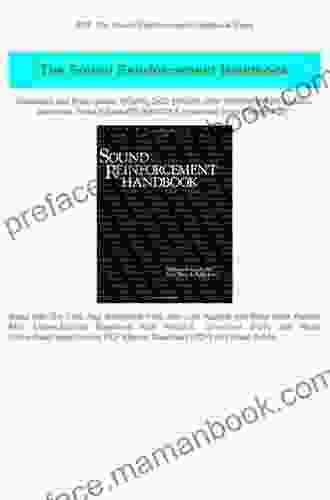Why Beethoven Threw the Stew: Unraveling the Enigma

Ludwig van Beethoven, the celebrated maestro whose musical genius continues to resonate throughout time, was not only a virtuoso at the piano but also a figure of enigmatic eccentricities. One such incident, which has sparked intrigue and speculation for centuries, is the infamous episode of Beethoven throwing a stew. This seemingly trivial event, however, holds profound implications for understanding the complexities of the composer's character and the interplay between his personal life and creative output.
Beethoven's Temperament: A Double-Edged Sword
Beethoven was renowned for his fiery temperament, a trait that both fueled his creative brilliance and led to frequent outbursts. His deafness, which began to manifest in his early thirties, further exacerbated his irritability and isolation. This heightened sensitivity to external stimuli made him particularly susceptible to disruptions during his creative process.
4.6 out of 5
| Language | : | English |
| File size | : | 11837 KB |
| Text-to-Speech | : | Enabled |
| Screen Reader | : | Supported |
| Enhanced typesetting | : | Enabled |
| Word Wise | : | Enabled |
| Print length | : | 148 pages |
The stew-throwing incident occurred during a particularly stressful period in Beethoven's life. He was grappling with financial difficulties, health concerns, and the frustration of his worsening deafness. These pressures created a volatile atmosphere, making him more prone to emotional outbursts.
The Incident: A Culinary Catastrophe
One afternoon, as Beethoven sat at his desk composing, he grew increasingly frustrated with the stew that his landlady had prepared for him. The soup was either too hot or too cold, or perhaps the seasoning was not to his liking. Whatever the reason, Beethoven's patience snapped.
In a fit of rage, he seized the pot of stew and hurled it towards the wall. The contents splattered across the room, leaving a sticky mess. His landlady, startled by the commotion, rushed in to find Beethoven standing defiantly by his desk, his face flushed with anger.
The Aftermath: Shame and Regret
Beethoven's stew-throwing incident was not simply a childish outburst. It reflected a profound sense of frustration and despair that had been building within him. The stew, in a symbolic way, represented the many obstacles and disappointments that he faced in his life.
The aftermath of the incident was bittersweet. Beethoven's landlady, understanding his condition, cleaned up the mess and offered him a new bowl of stew. Beethoven, ashamed of his behavior, accepted the offer and ate the stew in silence.
The incident had a lasting impact on Beethoven. It forced him to confront his own temper and the destructive consequences it could have. He resolved to control his outbursts and channel his emotions into his music.
The Creative Fallout: A Path to Serenity
In the months and years that followed the stew-throwing incident, Beethoven underwent a transformative period. He delved deeper into his music, seeking solace and catharsis in its creation. The frustrations and disappointments that had once haunted him became the raw material for his most powerful compositions.
Beethoven's late quartets and sonatas, composed after the stew-throwing incident, are characterized by their profound emotional depth and spiritual transcendence. These works, such as the "Hammerklavier" Sonata and the C-sharp minor Quartet, bear witness to Beethoven's resilience and his ability to transform adversity into artistic triumph.
Legacy: The Stew that Inspired Greatness
The stew-throwing incident, far from tarnishing Beethoven's legacy, has become an integral part of the mythology surrounding him. It serves as a reminder that even the most celebrated geniuses are not immune to human frailties and that creativity often thrives in the crucible of adversity.
Beethoven's legacy extends far beyond his musical compositions. His unwavering determination in the face of challenges and his ability to channel his emotions into transformative art continue to inspire artists, musicians, and individuals from all walks of life.
The stew-throwing incident, once seen as an embarrassing footnote in Beethoven's life, has now become a symbol of his indomitable spirit and his profound belief in the transformative power of music.
: The Enigma Unraveled
The mystery of why Beethoven threw the stew has been debated for centuries. Was it a trivial act of culinary dissatisfaction or a manifestation of deeper emotional turmoil? While the exact reason may forever remain elusive, the incident offers a fascinating glimpse into the complexities of Beethoven's character.
The stew-throwing episode, far from detracting from Beethoven's genius, sheds light on the human struggles and triumphs that shaped his artistic vision. It is a reminder that even in the most challenging of circumstances, creativity can find a way to flourish and inspire generations to come.
Ludwig van Beethoven, the tempestuous genius who threw a stew, remains an enigmatic figure whose life and music continue to captivate and inspire. The stew-throwing incident, once shrouded in mystery, now stands as a testament to the indomitable spirit and unwavering passion that drove one of the greatest composers of all time.
4.6 out of 5
| Language | : | English |
| File size | : | 11837 KB |
| Text-to-Speech | : | Enabled |
| Screen Reader | : | Supported |
| Enhanced typesetting | : | Enabled |
| Word Wise | : | Enabled |
| Print length | : | 148 pages |
Do you want to contribute by writing guest posts on this blog?
Please contact us and send us a resume of previous articles that you have written.
 Top Book
Top Book Novel
Novel Fiction
Fiction Nonfiction
Nonfiction Literature
Literature Paperback
Paperback Hardcover
Hardcover E-book
E-book Audiobook
Audiobook Bestseller
Bestseller Classic
Classic Mystery
Mystery Thriller
Thriller Romance
Romance Fantasy
Fantasy Science Fiction
Science Fiction Biography
Biography Memoir
Memoir Autobiography
Autobiography Poetry
Poetry Drama
Drama Historical Fiction
Historical Fiction Self-help
Self-help Young Adult
Young Adult Childrens Books
Childrens Books Graphic Novel
Graphic Novel Anthology
Anthology Series
Series Encyclopedia
Encyclopedia Reference
Reference Guidebook
Guidebook Textbook
Textbook Workbook
Workbook Journal
Journal Diary
Diary Manuscript
Manuscript Folio
Folio Pulp Fiction
Pulp Fiction Short Stories
Short Stories Fairy Tales
Fairy Tales Fables
Fables Mythology
Mythology Philosophy
Philosophy Religion
Religion Spirituality
Spirituality Essays
Essays Critique
Critique Commentary
Commentary Glossary
Glossary Bibliography
Bibliography Index
Index Table of Contents
Table of Contents Preface
Preface Introduction
Introduction Foreword
Foreword Afterword
Afterword Appendices
Appendices Annotations
Annotations Footnotes
Footnotes Epilogue
Epilogue Prologue
Prologue Curwen Best
Curwen Best Kim Brake
Kim Brake George Motz
George Motz Simon R Green
Simon R Green Leonard Mlodinow
Leonard Mlodinow Chad Robertson
Chad Robertson Leslie Becker Phelps Phd
Leslie Becker Phelps Phd Billy Mclean
Billy Mclean Shana Frost
Shana Frost Spencer Striker
Spencer Striker Marion J Goff
Marion J Goff Mining Novel
Mining Novel Tae Keller
Tae Keller Ben Kane
Ben Kane Tracey Taylor
Tracey Taylor Donnie Goodman
Donnie Goodman David S Craig
David S Craig A M Hargrove
A M Hargrove Annalee G Good
Annalee G Good Christina Ortmeier Hooper
Christina Ortmeier Hooper
Light bulbAdvertise smarter! Our strategic ad space ensures maximum exposure. Reserve your spot today!

 John SteinbeckJingi Hip Hop Handbook by Gordon Brewer: A Comprehensive Guide to the Art of...
John SteinbeckJingi Hip Hop Handbook by Gordon Brewer: A Comprehensive Guide to the Art of... Eli BrooksFollow ·9.3k
Eli BrooksFollow ·9.3k Harvey BellFollow ·8.4k
Harvey BellFollow ·8.4k Brent FosterFollow ·11.6k
Brent FosterFollow ·11.6k J.R.R. TolkienFollow ·6.2k
J.R.R. TolkienFollow ·6.2k Chase SimmonsFollow ·4.4k
Chase SimmonsFollow ·4.4k Emmett MitchellFollow ·9k
Emmett MitchellFollow ·9k George Bernard ShawFollow ·14.4k
George Bernard ShawFollow ·14.4k Gilbert CoxFollow ·12.6k
Gilbert CoxFollow ·12.6k

 Vincent Mitchell
Vincent MitchellUnveiling the Enchanting Tale of Plant Reproduction: A...
Plants, the silent yet vibrant...

 Sam Carter
Sam CarterDelve into the Enigmatic World of "Relative Murder: A...
In the realm of mystery and suspense, the...

 Richard Simmons
Richard SimmonsThe Sound Reinforcement Handbook: A Comprehensive Guide...
In the realm of live sound engineering, The...

 Leo Tolstoy
Leo TolstoyEnter the New Era of Cyberwar: Unmasking the Kremlin's...
`` Prologue: The Digital...

 Brenton Cox
Brenton CoxFirst Lessons Ukulele Bridget Baker: A Comprehensive...
Embarking on a musical journey with the...
4.6 out of 5
| Language | : | English |
| File size | : | 11837 KB |
| Text-to-Speech | : | Enabled |
| Screen Reader | : | Supported |
| Enhanced typesetting | : | Enabled |
| Word Wise | : | Enabled |
| Print length | : | 148 pages |












